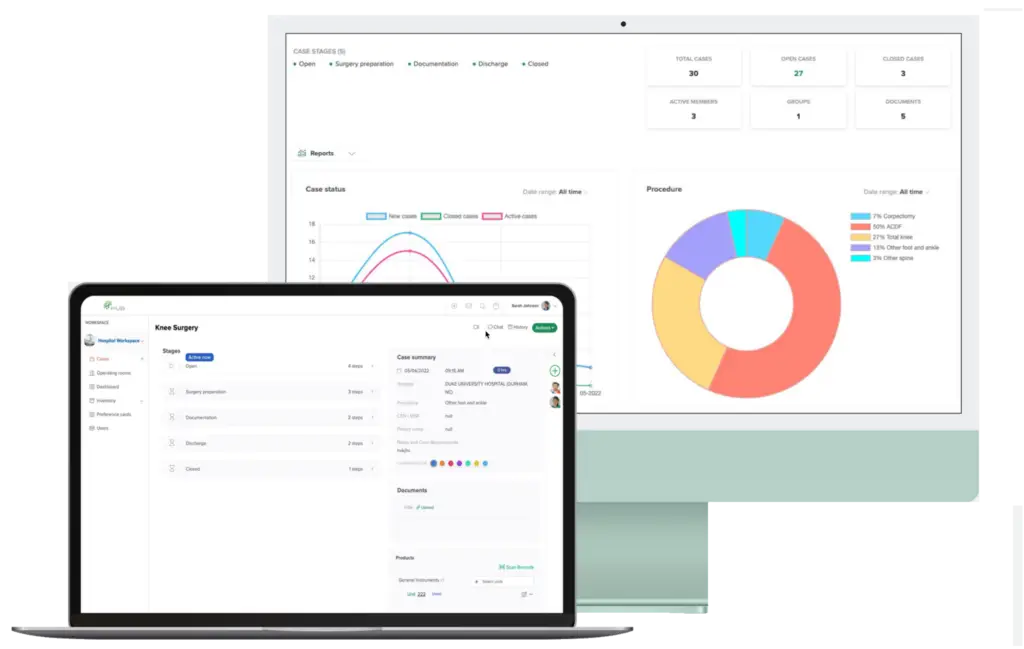Surgery scheduling is a crucial aspect of any medical practice. As a surgery coordinator, it is your responsibility to ensure that all surgeries are scheduled efficiently and effectively. To help you stay organized and on top of your game, we have compiled the ultimate surgery scheduler checklist. Follow these steps to ensure a smooth and successful operation.
Gather Patient Information
The first step in the surgery scheduling process is to gather all necessary patient information. This includes their name, contact information, insurance details, and any relevant medical history. It is important to have this information on hand to ensure that the patient is eligible for the surgery and to communicate with them effectively throughout the process.
Verify Insurance Coverage
Before scheduling a surgery, it is crucial to verify the patient’s insurance coverage. This will ensure that the surgery is covered and that there are no surprises for the patient when it comes to payment. If there are any issues with insurance coverage, it is important to address them before the surgery is scheduled.
Coordinate with Surgeon and Anesthesiologist
Once you have all the necessary patient information and insurance details, it is time to coordinate with the surgeon and anesthesiologist. This involves finding a date and time that works for all parties involved and ensuring that all necessary equipment and personnel will be available for the surgery.
Schedule Pre-Op Appointments
Before the surgery, it is important for the patient to have a pre-op appointment with the surgeon and anesthesiologist. This allows them to ask any questions or address any concerns they may have. It also gives the medical team a chance to review the patient’s medical history and ensure they are prepared for the surgery.
Communicate with Patient
Throughout the scheduling process, it is important to keep the patient informed and updated. This includes confirming the surgery date and time, providing pre-op instructions, and answering any questions they may have. Good communication with the patient will help alleviate any anxiety they may have and ensure a smooth and successful operation.
Prepare Necessary Paperwork
In addition to gathering patient information, it is important to prepare all necessary paperwork for the surgery. This includes consent forms, medical history forms, and any other relevant documents. Having these ready ahead of time will save time and ensure that everything is in order for the surgery.
Follow Up After Surgery
Once the surgery is complete, it is important to follow up with the patient. This includes scheduling any necessary post-op appointments and addressing any concerns or complications that may arise. Good follow-up care will help ensure the patient’s full recovery and satisfaction with their surgery experience.
Surgery Scheduler Checklist: Streamlining Surgery Coordination
Efficient surgery scheduling is crucial in healthcare. Follow this detailed checklist to ensure every surgery is organized effectively. For more in-depth information, visit our Help Center.
Collect Patient Information:
- Compile essential details: name, contact, insurance, and medical history.
- Ensure accuracy and completeness for streamlined communication.
Insurance Verification:
- Confirm the patient’s insurance coverage for the surgery.
- Resolve any coverage issues to avoid billing surprises.
Coordinate with Medical Teams:
- Liaise with the surgeon and anesthesiologist to fix a surgery date.
- Confirm availability of equipment and staff.
Schedule Pre-Operative Appointments:
- Arrange pre-op consultations for the patient with the surgeon and anesthesiologist.
- Facilitate patient queries and pre-surgery instructions.
Maintain Communication with Patient:
- Regularly update the patient about the surgery schedule.
- Provide clear pre-operative and post-operative instructions.
Prepare Required Documentation:
- Organize and ready all necessary paperwork including consent forms.
- Ensure legal and medical compliance.
Post-Surgery Follow-Up:
- Schedule post-operative check-ups and any necessary follow-up treatments.
- Address post-surgery queries or complications.
Maintain Surgery Records:
- Document all details for future reference and compliance.
Continuous Coordination:
- Continuously liaise between the patient and the medical team up to the surgery day.
Emergency Protocol Readiness:
- Be prepared for any last-minute changes or emergencies.
- Feedback and Improvement:
- Collect feedback post-surgery for continuous improvement.
By following this ultimate surgery scheduler checklist, you can ensure a smooth and successful operation for your patients. Do you have any additional tips or tricks for surgery scheduling? Let us know in the comments.
How HUB Healthcare Can Help
HUB Healthcare provides a comprehensive solution designed to enhance communication in healthcare, streamline care coordination, and improve overall workflow efficiency. Our platform includes features such as medical case management software, healthcare document management, and healthcare analytics to ensure that all aspects of patient care are optimized. By leveraging HUB Healthcare’s robust tools, organizations can reduce workflow bottlenecks, automate repetitive tasks, and facilitate better collaboration among healthcare providers. This not only improves work quality but also enhances patient outcomes, making HUB Healthcare an essential partner in achieving healthcare excellence. Visit our Help Center to learn more about optimizing your healthcare workflows.







